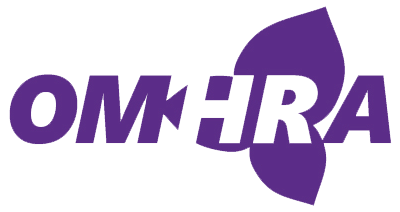
How many of you remember the Archimedes principle? The volume of the object in a fluid will disperse an equal amount. So, when one sits in a bathtub, the water in the tub rises, or put a cube in a glass, and the liquid rises. How does this relate to Psychological Health and Safety for HR Professionals?
Before COVID, people had a half-full cup. Then we add COVID’s demands, unknowns, and all the repercussions that continue. The things that keep adding to the cup. It is no longer ½ full but 7/8 full.
What would happen if one more new thing was added which can no longer be absorbed? Archimedes means it overflows. Parents react to their kids beyond what should have been expected for what happened, workers overreact in the workplace. These are examples of a product of a full cup.
Several leaders have shared how overwhelming these psychosocial factors are for all humans, include a changing workplace culture and the reality that many have full cups.
How often do we judge people’s reactions rather than acknowledging what happened? Why do we make an average person with normal reactions to an abnormal event so convoluted? The result is a full cup overflowing in unhealthy ways
Allowing people to be human is not excusing things, but even when it’s not a shining moment, it is human! Psychological Health and Safety means acknowledging that sometimes our cup is too full.
There are some simple considerations to encourage people to be human.
- First, personal well-being aligns with personnel well-being. Like the cliché, ‘monkey see, monkey do’,
“Attitude reflects leadership”
When leaders fail to model the values and practises they want people to, performance, conflict, retention, and engagement overflow. The reactive approach is costly; tilting towards punitive, when support and encouragement is more appropriate.
- Silos – Can we have Psychological Health and Safety(PH&S) when we do not have physical, emotional, or even relational safety?
Training is required for WHMIS, Respect in the Workplace, AODA, so why not for PH&S? There are lots of talks and sessions on mental health and wellness, yet is it integrated and applicable, so there are truths and consequences? Should PH&S be an informational silo or an actual and operational part of OH&S?
United we stand, divided we fall!
How many HR Professionals do we know who have been on the receiving end of disrespectful, rude, and/or bullying behaviours? What about the impact to their morale and morals? Is it tolerated? Where is Psychological Health and Safety for HR Professionals when it impacts the whole person and not just the physical, emotional, or psychological silo? If one person is expected to take it, others get the meme. We’ve done all the ‘required training’, but is it just talk, or is it honoured?
- Recognition and Appreciation – One of the thirteen factors for PH&S in the workplace, is it upheld? Change the status quo, watch the critiques. When it comes to performance issues and pointing out something wrong – a lineup of people willing to ‘help’ will appear. Yet when it comes to showing gratitude, saying thanks – crickets!
The forgotten reality,
‘People tend to become what they are encouraged to, seldom what they are nagged to do!’
Some administrators worked through COVID and reserved sick days for being sick while others maxed theirs out. The leadership response was silence, not a word, and nothing was mentioned. Now more people are maxing out sick time as there is zero value in giving extra, so why knock ourselves out? Tragically, there is more pressure on leadership as fewer people are rowing in the same direction.
- Leadership pressures increase – leadership well-being is not modelled, silos are the norm, appreciation/ gratitude is not commonplace, and leadership is pressured to maintain productivity and performance, not to mention recruitment and retention.
This type of leadership feels like,
‘Herding cats!’
Let’s stop trying to hatch a culture where people want to work and start growing one. It is not a program, an event, which someone checks off the list; it is a process.
To demonstrate [not merely talk about it] that Psychological Health and Safety for HR Professionals matters first for them and then for the people they serve starts with shared values, the WHY! This will allow shared responsibility.
It’s the values where people come first, not a course, because
Cared for people, care for…
It is a valuable thing to do because,
You matter so that others
can see they matter!
Presented by

Archives
Categories
- Attraction and Recruitment
- Benefits
- Celebrating Success and Recognition
- Change Management
- Conflict Resolution and Coaching
- Culture
- Diversity, Equity and Inclusion
- Emotional Intelligence
- Employee Engagement
- Employee Performance
- Labour Disruption
- Mentoring
- OMHRA activities
- OMHRA Events
- Psychological health and safety of the HR professional
- Recruitment
- Recruitment and Retention
- Retention
- Uncategorized
- Unique ideas for recruiting in a tight job market
- Wellness
Recent Posts
- Creating a Psychologically Safe Workplace
- Group Health Insurance – The Impact of Preferred Pharmacy Networks on Employees’ Mental Health
- Provide Real Support For Your Mid-Career Team’s Psychological Resilience
- Mental Health Benefits Within Group Plans
- Psychological Safety through Conflict Resolution

